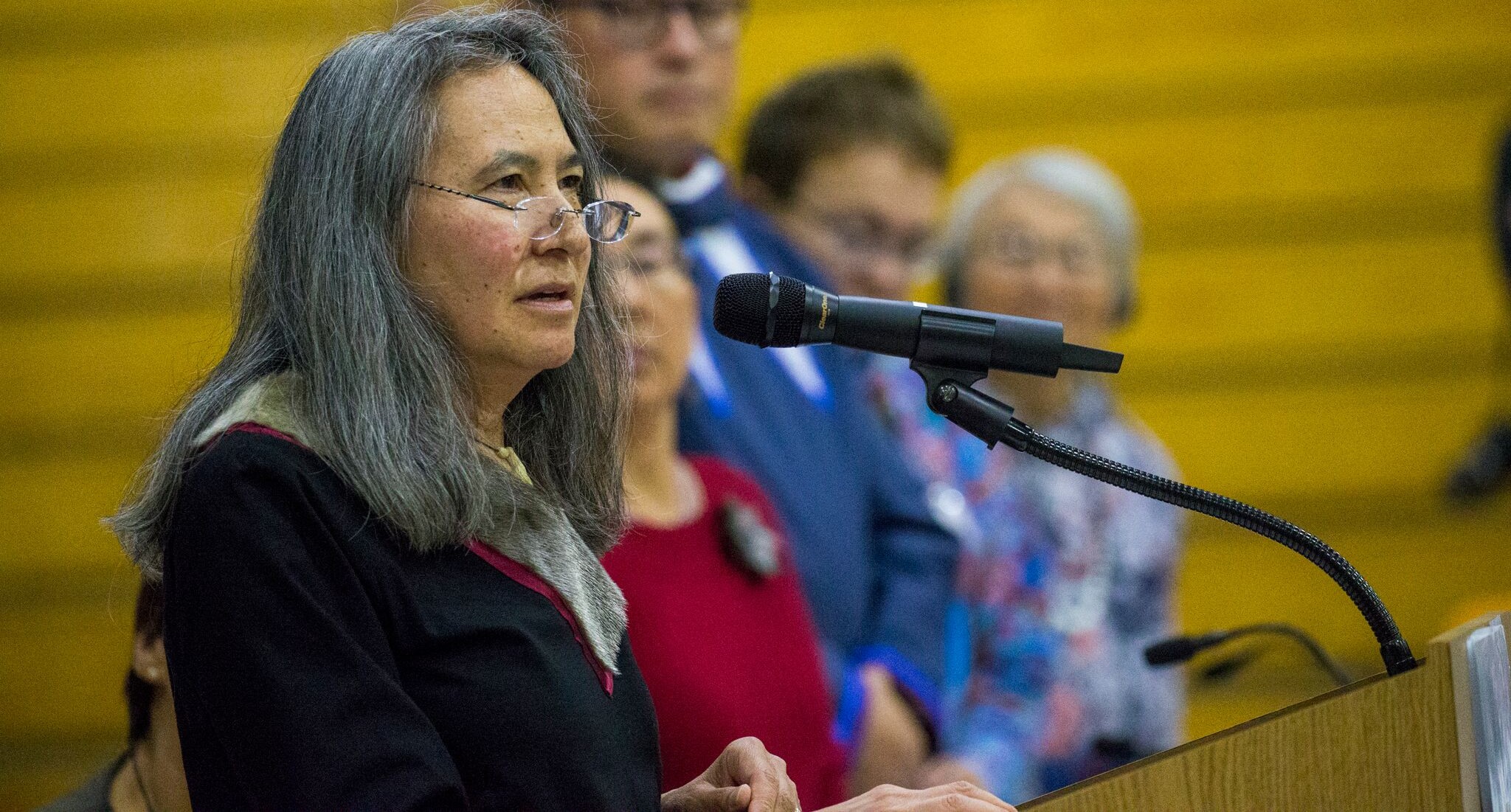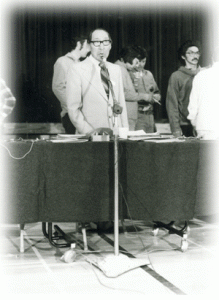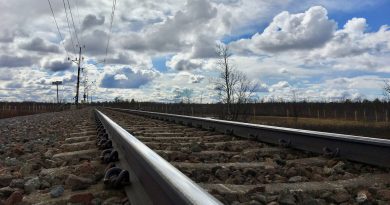International Inuit Day is an occasion to affirm Inuit voices across the circumpolar world, leader says

Thursday is International Inuit Day, a celebration set up to acknowledge and celebrate Inuit culture and contributions, but most importantly to affirm the voices of Inuit across the circumpolar world, says the organization that established the occasion.
“Inuit inhabit 40 per cent of the Arctic and in an era where exterior forces, be it countries or industries, are increasingly voicing their intentions concerning the lands we live in, Inuit need to have a united voice now more than ever and reaffirm our human rights,” says Dalee Sambo Dorough, chair of the Inuit Circumpolar Council, in an phone interview with Eye on the Arctic.
Different Inuit organizations and groups mark the occasion in different ways each year.
Inuit Tapiriit Kanatami (ITK), Canada’s national Inuit organization, has been marking the lead up to International Inuit Day by sharing videos daily on social media from their Inuit Nunangat Taimannganit video storytelling project.
“We observe (International Inuit Day) by promoting it through ITK’s social media platforms and also taking this opportunity to educate on who we are as Inuit in Canada,” says Kevin Kablutsiak, ITK’s director of communications.

International initiative
International Inuit Day was established by the Inuit Circumpolar Council (ICC), the organization that represents the approximately 165,000 Inuit in Alaska, Canada, Greenland, and Chukotka, Russia.
The motion was made at their 2006 General Assembly in Barrow (now called Utqiagvik), Alaska, “to urge all Inuit governments, agencies, and communities to annually proclaim this day as Inuit Day, and conduct appropriate ceremonies and celebrations.”
November 7 was chosen as it was the birth date of Eben Hopson Sr., founder of the Inuit Circumpolar Conference, the precursor to the Inuit Circumpolar Council.
“This day is also to memorialize him, for his ingenuity and foresight in the importance of uniting Inuit voices,” Dorough said.
Inuit Circumpolar Council – Canada, the Canadian chapter of ICC, is planning to post a video marking the day on Facebook and Twitter, as well as asking people to post what they’re doing on International Inuit Day as they did last year during their #InuitDay2018 campaign.
Tungasuvvingat Inuit (TI), a counselling and resource centre for Inuit in Ottawa, Ontario, says the day is also a good occasion to think about the contributions, challenges and successes of Inuit in Canada who live outside of Canada’s four Arctic Inuit regions: the Inuvialuit Settlement Region, Nunavut, Nunavik and Nunatsiavut, an area collectively referred to by Inuit as Inuit Nunangat.
“At TI we recognize the regions outside of Inuit Nunangat (away from traditional homelands) as “The Fifth Region” and remind all that an Inuk is an Inuk is an Inuk regardless of geography and where they live,” said Joël Lamoureux TI’s communications manager. “Too often, Inuit outside of Inuit Nunangat are overlooked in celebratory days like International Inuit Day. “
Write to Eilís Quinn at eilis.quinn(at)cbc.ca
Related stories from around the North:
Canada: Seal meat, dinosaurs and friends: Nunavut Day celebrated in Canada’s eastern Arctic, CBC News
Sweden: Calls for more Indigenous protection in Sweden on Sami national day, Radio Sweden
United States: Indigenous Peoples Day celebrated in Alaska, Alaska Public Media



